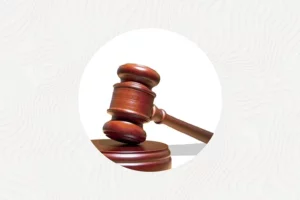The country’s government is planning to hold a state funeral for former Japanese Prime Minister Shinzo Abe. Abe’s state funeral is likely to take place on September 27. He also announced to spend 140 million yen for this.
Japan’s opposition leaders say it would be more rational to spend government money on public welfare at this difficult time for the country’s economy. Apart from this, most of the citizens of the country are against organizing state funerals.
Before this, he served as the head of the government of Japan for about 9 years in two terms. Later in 2012, after assuming the post of Prime Minister for the second term, he served for eight consecutive years. Through this, he became Japan’s longest serving politician.
Shinzo Abe remains the most influential leader of Japan’s ruling Liberal Democratic Party-LDP, despite voluntarily resigning as prime minister in September 2020. As a result, despite being out of power, Abe was seen as a ‘king maker’. Even current Prime Minister Fumio Kishida was able to become Prime Minister because of Abe’s support. As a result, one can easily see the reflection of the desire of the ruling leadership to strengthen their position by showing respect for the late Abe and gaining the support of his followers. A state funeral for Abe is seen by many in Japan in that light.
The last time Japan held a state funeral for a late prime minister was the death of Shigeru Yoshida in 1967.
Critics of the state-level ceremony for Shinzo Abe say he did not die in power. Therefore, such arrangements for funerals at the expense of state funds cannot be justified. They say that organizing the funeral at the initiative of the cabinet and the ruling party and using their funds would be the most acceptable way.
But Japanese Prime Minister Fumio Kishida and his supporters say Abe has made a long-term contribution by providing strong leadership during difficult times. A state funeral is organized to recognize him. Kishida also says leaders from more than 50 countries around the world have said they are ready to travel to Japan to pay their last respects to Abe. For this reason, Japan’s event will be a rare opportunity to conduct intimate discussions at the diplomatic level.
The anti-Japanese political camp, however, is reluctant to accept such arguments.
Besides, the majority of the country’s citizens are against organizing state funerals.
On the other hand, 53 percent said that they are against such a move. Many have pointed to the difficult state of the economy as the main reason. As prices continue to rise in Japan, the standard of living for ordinary citizens is becoming more expensive.
Prime Minister Fumio Kishida’s administration announced last month that Abe’s state funeral would cost about 250 million yen. But later this calculation gradually increased. Last Tuesday, the Japanese government said that the government will allocate an additional 140 million yen for this.










More Stories
Tax evasion: Why CID Needs Its Own Arraignment Unit
Strikes in East Ukraine Notwithstanding Putin’s Truce Request
‘Katha Shunche TikTok’, eliminated around 5 million recordings of Bangladesh